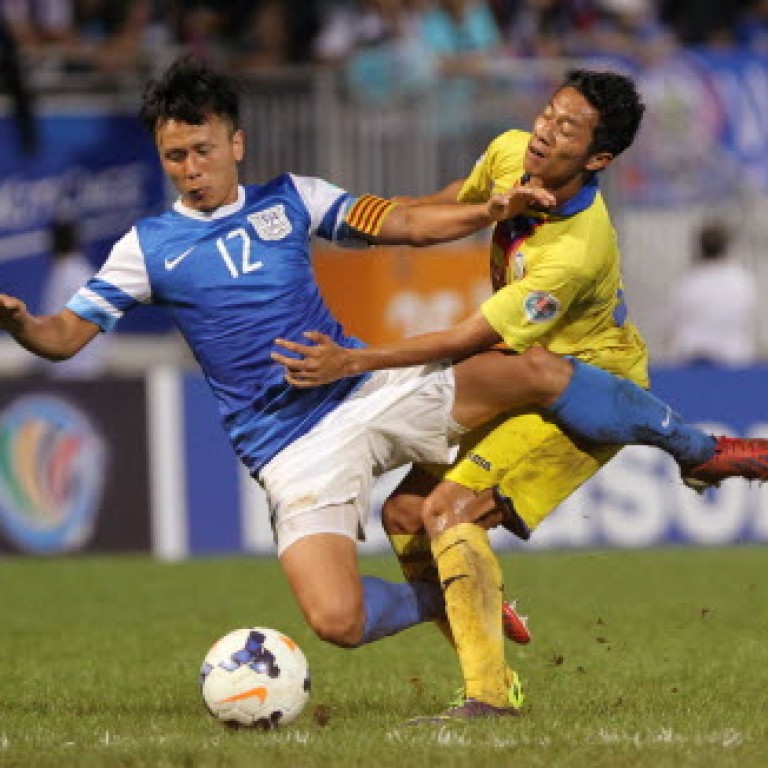
Left Field: Hong Kong's home-grown players need more playing time in the Premier League
Kitchee and the HKFA should give our local stars more opportunities to play if standards are to improve
Lo Kwan-yee hit the nail on the head soon after Kitchee clinched the treble this season by defeating Eastern in the FA Cup final when he said it was a pity local players were not being given more opportunities in the Premier League.
The Kitchee captain said he regretted that he was the only local player in the starting team - the 10 others being either foreign, naturalised or from the mainland. The practice of loading the team with foreign talent, according to Lo, would have a "negative effect on the next generation as they will think there are not sufficient chances for them in the top flight".
Maybe Lo is thinking of his own self-interests. His contract with Kitchee expires at the end of the season and he could be pitching for his job when he says "the local players are just as good as their overseas counterparts and all we need is more opportunities from the management". But do Kitchee management think the same way?
The local players are just as good as their overseas counterparts and all we need is more opportunities from the management
Unfortunately, the answer is no. Kitchee might be grooming the next generation of local stars in their nursery, but the short-term focus is on winning trophies. At the end of the day that is what matters with sponsors and the club's well-wishers, including the Hong Kong Jockey Club, which has thrown its considerable weight behind the club by providing facilities.
Other clubs will take the lead from the champion team, if they aren't already, and pack their sides with foreign talent in pursuit of silverware and glory. The end result is it will leave local players on the sidelines, waiting in vain for a chance to shine.
What this translates into is a weakened national squad. If the local players don't get the opportunity to play in the domestic league, how can they take the next step on the international scene? They will be well off the pace as has been discovered in recent years.
The Hong Kong Football Association has recognised this and is contemplating setting up a youth team, perhaps under-23, with players drawn on-loan from the top clubs. It is targeting the 2016-17 season to field such a team.
Why can't this team be in place next season? If the situation is dire - the fact that Hong Kong are ranked 169th in the world speaks volumes - urgency is required and the HKFA should take on the responsibility of funding such a team until a sponsor can be found. Perhaps if the clubs have the interests of Hong Kong at heart, they could continue to pay the players' salaries, which would go a long way to helping create this youth team.
Last week also saw the local game mark the 30th anniversary of our most famous moment - defeating China in Beijing in the qualifying competition for the 1986 World Cup - with former HKFA chairman Lawrence Yu Kam-kee firing a broadside at the governing body for the "lack of progress" in the game.
If our national team can only mark a victory that sparked riots on the streets of Beijing as our most famous moment in the past 30 years, then it is indeed sad
Yu, who was manager of that Hong Kong team in 1985, has a point. If our national team can only mark a victory that sparked riots on the streets of Beijing as our most famous moment in the past 30 years, then it is indeed sad. Yu asks "what about now" and this is a pertinent question when you look at the money being injected into the sport.
The government has spent more than HK$100 million in the past three years (Project Phoenix and the subvention from the Leisure and Cultural Services Department). This year that figure will rise to nearly HK$50 million. In the meantime, local clubs spend close to HK$20 million a season.
So Yu asks, like most people, where is the return on this money? They fail to see that for development to take place, a strong foundation has to be put in place first, which the HKFA has now done. But for the next step to be taken, it will need the support of all stakeholders, especially the Premiership clubs and one way that can be done is for them to release their local players if they are unlikely to get a regular run in the team.
The HKFA could also bring in a rule making it mandatory for clubs to field local players - say three - at all times on the pitch. These players must be truly home-grown and not those overseas-born players who have lived here for more than seven years.
If Lo is right in believing the quality of home-grown players is as good as their overseas counterparts, then the standards of the game will not suffer.


